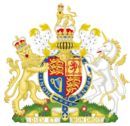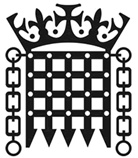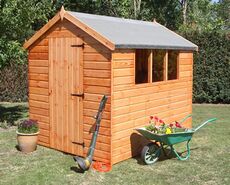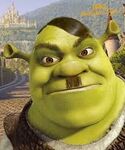UK Government
| Part of a series on |
| Politics of the United Kingdom |
|---|
 |
| Government |
| Monarchy |
| Parliament |
| Leaders |
| Elections |
| Parties |
|
|
Her Majesty's Government also refered to as Those People Who Try To Tell Me How To Run My Bloody Country by the Monarch is the central government for the United Kingdom of Great Britain and Northern Ireland.
The leader of the Government is known as the Prime Minister who accepts responsibility when everything is going well and blames his minions when everything is going badly. The Prime Minister and senior minions form up a supreme decision making committee, who sit around the Round Table admiring the Prime Minister's cabinet. They spend most of their time drinking tea, chatting about how idiotic the Mayor of London is, guessing how much they each earn and working out who has the closest connection to Royalty. The Government is dependent on parliament to pass decisions, much to the delight of back-benchers. The UK Parliament is re-elected every 5 years to keep some form of democracy apparent to the general public.
According to the British constitution the Monarch has executive authority over the country although this exercise is only used on the advice of the Cabinet and the Prime minister. The Prime minister chooses the cabinet and the monarch accepts the Prime minister if they like the Prime minister so in reality the Monarch can do whatever they like on the advice of the Prime minister who they choose. Also half the parliament, the House of Lords is chosen by the Monarch to represent the country and they have the final say on policies. For these reasons Britain is one of the most democratic nations in the world.
Government in Parliament[edit]
A key part of the British constitution is that the government is responsible to parliament. Seeing that parliament consists of a lot of jumped-up, posh twits who don't know their right from their far right, this form of government is called Irresponsible Government.
The House of Lords has some restrictions put in place ever since Lord Loopy tried to pass a bill to desolve the House of Commoners or "Plebs" as he called them. So now both the positions of Prime minister and the Chancellor of the Chequers can only be held by MPs from the House of Commons. The last Lord to hold the position of Prime minister was Screaming Lord Sutch himself. Lord Sutch campaigned that restricting the positions that Lords can hold in politics is taking away the rights of the Upper Class so an exception was made for him.
The Cabinet makes the decisions however the parliament votes to pass them, it is necessary therefore for the cabinet's party (or parties in a coalition) to have majority support in the House of Commons by making ridiculous statements that everyone wants, to get elected in and then not acting on them. The difference between the Government of the UK and most other democratic governments is that the government is not allowed to continue if in public school holiday time because MPs need to go back and visit Nanny in the Lake District each Summer for another game of Swallows and Amazons. If a government holds a minority a general election must then be held to decide the new government. This is because the British absolutely love voting to show off to other countries how democratic they are. Unfortunately the British public's votes amount to very little and Simon Cowell's decision is final.
The Prime Minister is held to account in Prime Minister's question time, which was introduced in the late 20th Century after the Prime Minister would usually take all the country's money and disappear for five years so no one could question his policies. Prime Minister's question time allows the back benchers in the Prime minister's own party to join in with the opposition party in condemming the Prime Minister's actions. In most countries the fact that ministers in the government's own party would speak out against the government in front of the opposition would be seen as treachery however in the UK the Prime Minister just learns to deal with it, takes it as mild heckling and returns the favour by leaking the heckler's sex scandal to a broadsheet newspaper.
Government and the Crown[edit]
The British Monarchy is head of State of the United Kingdom and their many other small colonial territories as well. The Monarch involves themself as much as they can in parliament to remind the population who still rules the country. Hence on each year on the day of the opening of parliament she storms into the House of Commons which can only legally be occupied by commoners and demands that the Prime minister passes a ridiculous bill.
The powers of the Monarchy in Government decisions include:
- Choosing which type of tea should be used in the cabinet (although a new law passed in July of next year shall make this the Deputy Prime Minister's job).
- Paying the House of Lords to be biased in their policy decisions.
- Making sure one of their third cousins becomes Prime Minister.
Location[edit]
The Government owns many buildings all over the centre of London. One of the reasons that the government's public spending is always so low is that it has to spend 23% of its public spending on renting buildings in the centre of London (one of the most expensive areas of the World). All Government minitries can be found on roads with no pleb access to them and huge fees for travelling on them by car.
After Parliament overthrew the Monarch in the English Civil War the Monarch was forced to give some of their palaces to Parliament and some to the libertarian, republican organisation, The National Trust. Palaces that went to Parliament included Westminster Palace, which became the home of Parliament. The House of Commons occupies the South part of the building nearest the river Thames and the House of Lords occupies the North part of the building furthest from the river Thames. This is so that the smell of all the fresh sewage dumped into the river Thames only affects the commoners and not the Lords.
Political parties[edit]
There are many political parties, one of which is elected every 5 years by the people of Britain to "govern the country". (As if!) Here are a few of the more popular parties:
- The Conservative Party -- This party is dedicated to nature conservation, and the installation of conservatories on every house in the country. This party almost always gets elected because old people like conservatories.
- The Labour Party -- This party is basically the same as the Conservative Party, however they mainly push for more women to have children, and therefore there will be more labour (hence the name of the party).
- UKIP -- This party pushes for Britain's population to have longer hours of sleep (hence the KIP in UKIP). This party has gained a lot of support in recent years as general laziness increases across the country.
- The Green Party -- Led by the esteemed politician and movie producer, Shrek, this party is a far-right, racist organisation dedicated to restoring the ethnostate of The Great Ogre Swamp to the United Kingdom. This party has gained a lot of popularity among ogres in the UK, many of whom want to restore their swamp nation that was destroyed long ago by the British in order to make way for more council housing.


